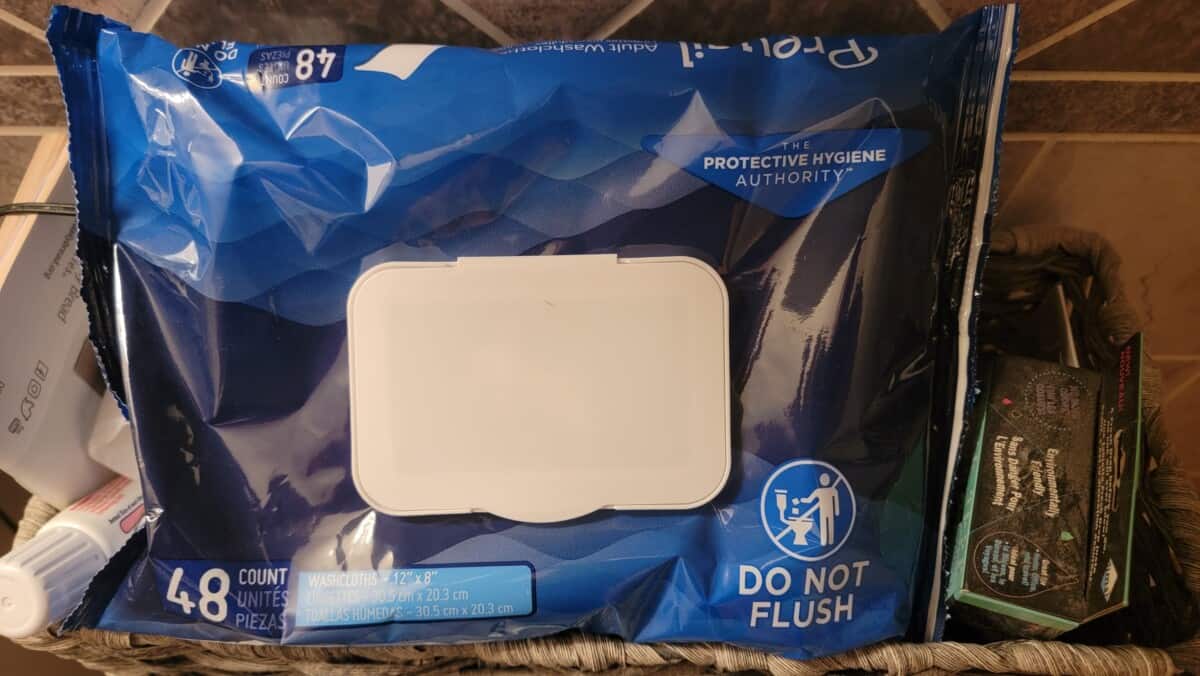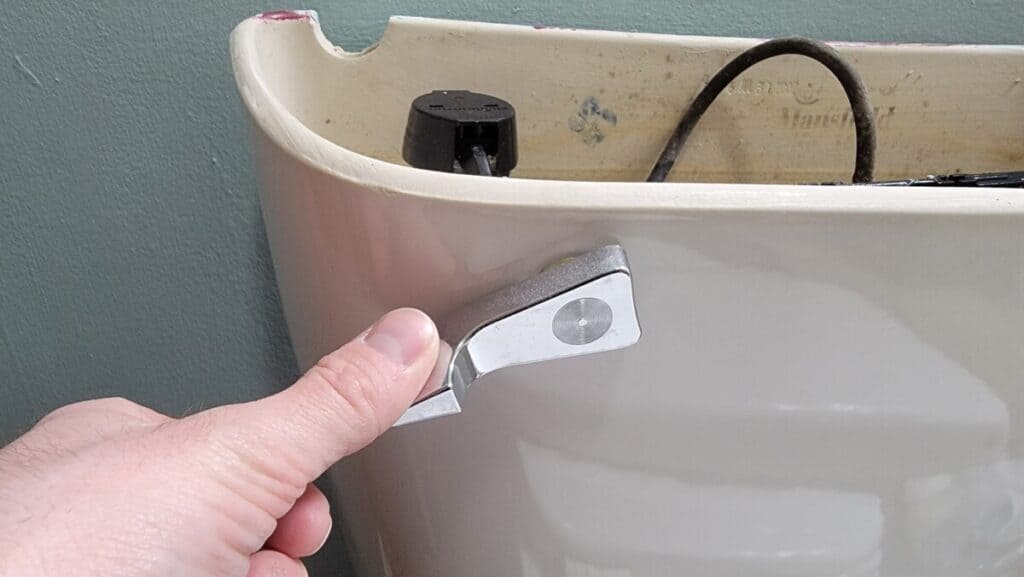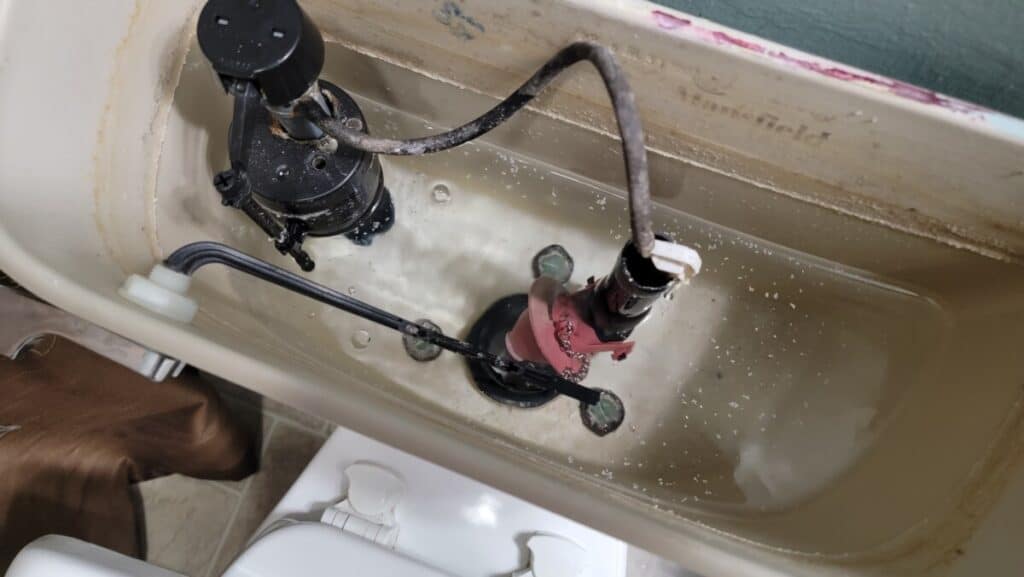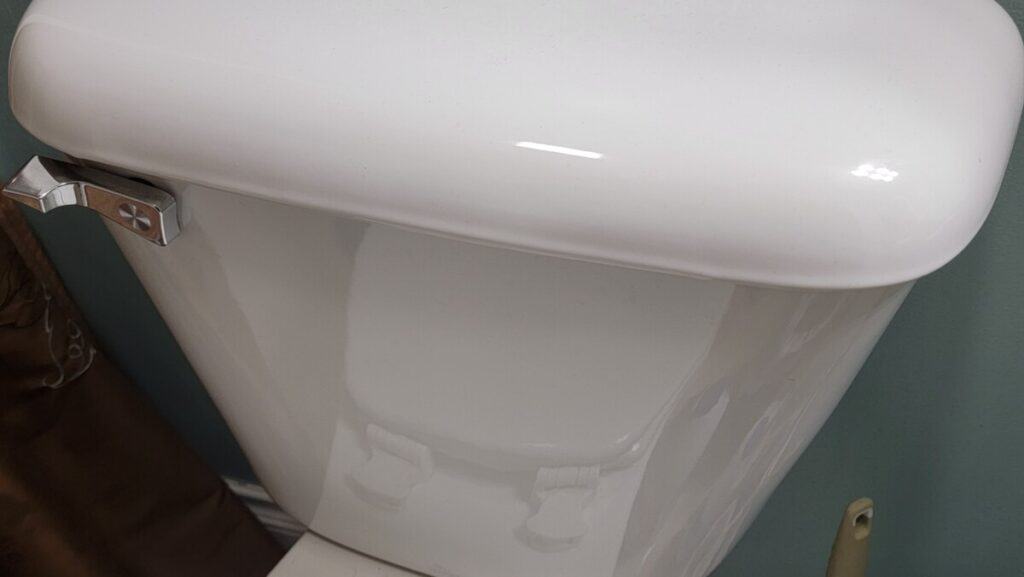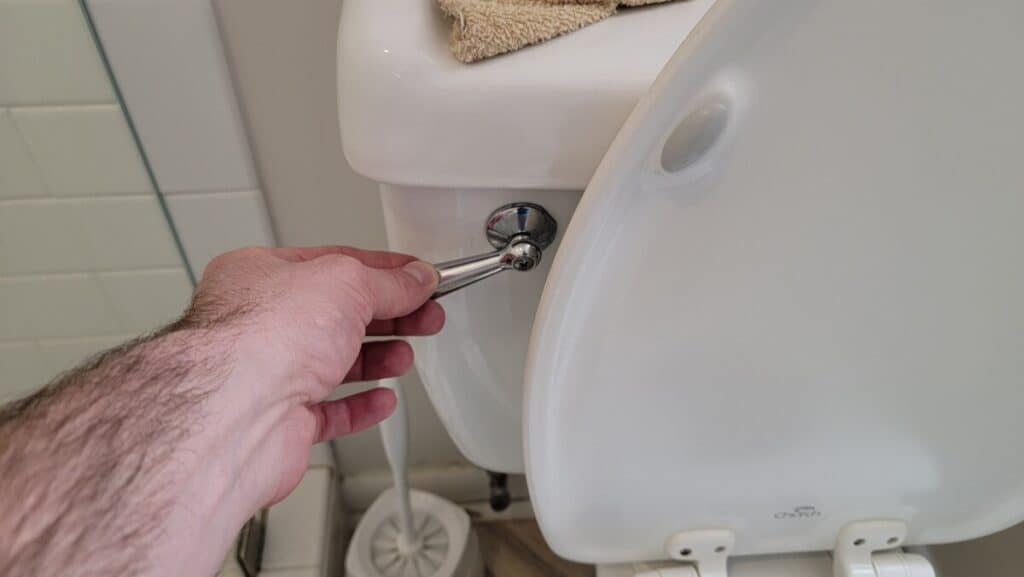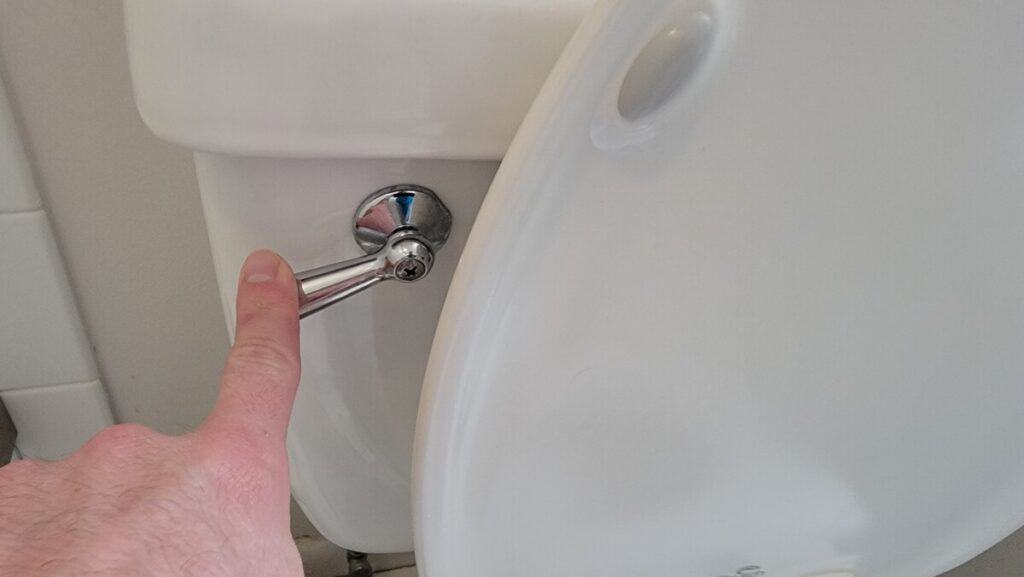Accidentally Flushed Baby Wipes: A Plumber’s Nightmare?
In the hustle and bustle of our daily lives, convenience often takes precedence over caution. One such instance is the seemingly harmless act of flushing baby wipes down the toilet. It’s quick, it’s easy, and it’s out of sight, out of mind, right? Unfortunately, this common practice can lead to a series of plumbing nightmares that are anything but convenient.
I dealt with this problem countless times at work, and despite that, I didn’t learn the lesson in my personal life. For a few weeks when I had my first baby I was flushing the wipes without a second thought. Then I clogged our entire drain pipe to the septic and water wasn’t draining from any appliance, sink, shower or toilet.
This comprehensive guide dives deep into the murky waters of the consequences of flushing baby wipes. It uncovers the truth behind the misleading “flushable” label, reveals the havoc these wipes can wreak on your plumbing, and explores the wider impact on municipal sewer systems.
From immediate toilet clogs to long-term sewer damage, the journey of a flushed baby wipe is fraught with potential disasters. Don’t worry though, this guide also provides practical solutions to prevent these issues and tips on what to do if you’ve already sent those wipes swirling down the drain.
So, before you reach for that flush handle, take a moment to consider the journey that lies ahead for that innocent-looking baby wipe. Your pipes, your wallet, and your local sewer system will thank you!
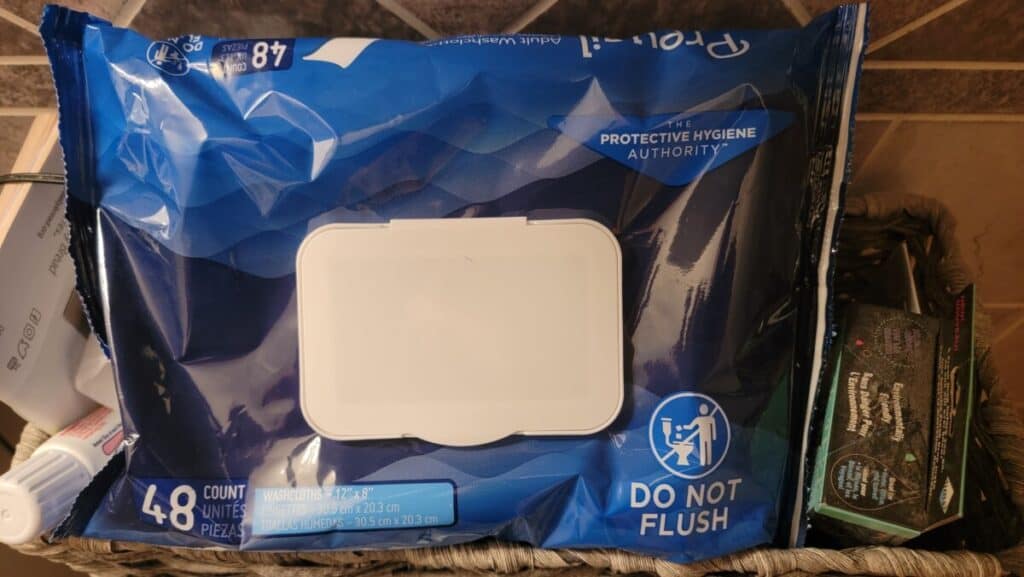
The Consequences of Flushing Baby Wipes
Flushing wipes down the toilet may seem like a convenient way to dispose of them, but it can have serious consequences for your plumbing. Many people mistakenly believe that baby wipes are safe to flush because they are labeled as “flushable.” However, this label can be misleading and does not guarantee that the wipes will break down in your pipes or sewer systems. One of the most immediate consequences of flushing baby wipes is a clogged toilet.
Unlike toilet paper which is designed to dissolve quickly in water, baby wipes are made from materials that are not easily broken down. As a result, when you flush them down the toilet, they can get caught on other debris in your pipes and create a blockage.
This clog can prevent water from flowing freely through your plumbing system and lead to backups and overflow. Furthermore, flushed baby wipes can cause damage beyond just a simple clogged toilet.
As they accumulate in your pipes or make their way into the sewer system, they can contribute to more significant sewer damage. The accumulation of these non-biodegradable items along with other foreign objects like cotton swabs and balls can lead to pipe clogs and even damage to the infrastructure of your plumbing system.
This not only poses a risk for costly repairs but also puts strain on municipal sewer systems that may already be struggling with overloaded waste treatment facilities. It’s crucial to avoid flushing wipes down the toilet as they do not dissolve like regular toilet paper.
The consequences of such actions include clogged toilets and potential damage to both personal plumbing systems and larger sewer networks. To prevent these issues and ensure proper functioning of your plumbing, it’s best to dispose of wet wipes properly by discarding them in trash bins instead of flushing them away.
Understanding the Plumbing Issues Caused by Flushed Baby Wipes
When it comes to plumbing, we often take for granted the simplicity of flushing things down the toilet. However, when wet wipes or baby wipes are mistakenly sent on a journey through our sewer systems, chaos can ensue.
Unlike toilet paper, which is designed to quickly dissolve in water, these seemingly innocent wipes pose a significant threat to our plumbing. One of the most common problems caused by flushed baby wipes is a clogged toilet.
These wipes do not break down like toilet paper does and can easily get caught in the twists and turns of your plumbing pipes. As more and more wipes accumulate, they form an impenetrable barrier that prevents water from flowing freely through your toilet and drain pipes.
In my case, I had a small burr on the interior of my plumbing system at the main drain as it left the house in the crawlspace. One wipe got caught on that burr and started catching more wipes, toilet paper, and waste until water would not leave my house through the pipes.
This blockage can lead to overflowing toilets and potentially even sewer damage if left untreated. To make matters worse, attempting to dissolve baby wipes by continuously flushing water down the toilet will likely only exacerbate the problem.
Unlike toilet paper that disintegrates upon contact with water, wet wipes are typically made from durable synthetic materials designed to withstand moisture. Therefore, flushing wipes down the toilet only increases the likelihood of experiencing a dreaded clog in your beloved porcelain throne.
If you find yourself facing a clogged toilet due to flushed baby wipes, don’t panic just yet! There are several steps you can take before calling in a plumber or sacrificing your favorite plunger into battle.
A drain auger or snake tool may come in handy here – it’s designed specifically for unclogging drains blocked by foreign items such as cotton swabs and balls or those resilient wet wipe offenders. By carefully inserting this tool into your troubled pipeline and maneuvering it through any obstructions caused by accumulated flushables, you may be able to dislodge the clog yourself.
The drain auger and snake tools have a pointed end that is spiraled, and if you turn the handle of the tool as you’re using it then you can actually drill into the wipes and pull them back out.
Understanding the potential plumbing issues caused by flushed baby wipes is essential for maintaining a properly functioning bathroom system. Remember to avoid flushing wipes down the toilet and stick to using only toilet paper (as far as flushing), as it is specifically designed to dissolve in water.
If you accidentally find yourself dealing with a clog resulting from improperly disposed wipes, try utilizing a drain auger or seek professional help if the problem persists. By being mindful of what goes down our drains, we can prevent unnecessary damage to our plumbing and keep our bathroom experiences smooth and hassle-free.
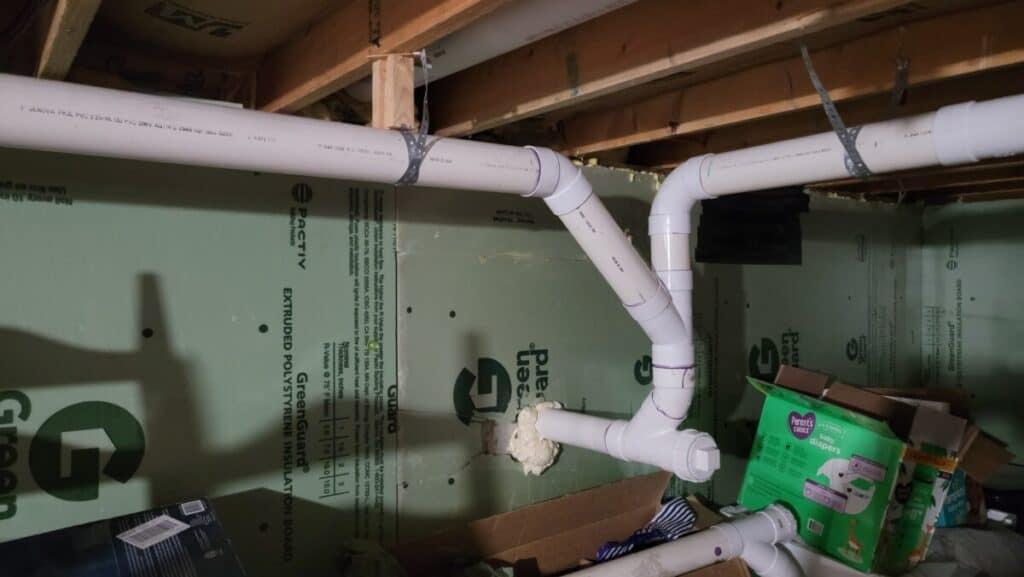
Baby Wipes Cannot Be Dissolved in Your Toilet or Plumbing
Flushing wipes down the toilet may seem like a convenient and easy way to dispose of them, but it can lead to serious consequences for your plumbing. Unlike toilet paper, which is designed to dissolve quickly in water, baby wipes are made from materials that do not break down easily.
This means that when you flush them, they can get stuck in your pipes and cause clogs. When baby wipes enter your plumbing system, they can create a variety of issues.
First, their non-biodegradable composition makes it difficult for them to dissolve in water. Unlike toilet paper that disintegrates rapidly after being flushed, baby wipes retain their form and texture for a much longer time.
As a result, they can accumulate within the pipe and create a blockage over time. Moreover, flushing wipes down the toilet can also lead to more severe problems if you have a septic tank system.
In this case, the non-dissolvable nature of baby wipes prevents them from being broken down by the bacteria present in septic tanks. As a consequence, these flushed baby wipes accumulate within the tank itself and reduce its capacity to function efficiently.
This could potentially lead to an overflow or backup of wastewater into your home. Disregarding the fact that baby wipes cannot be dissolved in your toilet or plumbing can have detrimental effects on your entire plumbing system.
Pro Tip: Do not attempt to use sulphuric acid or other chemicals to dissolve the baby wipes that are clogging your toilet or pipes — stick to augers or snakes to drill into and retrieve the blockage in order to dispose of it in the trash!
It is important to be mindful of what should and shouldn’t be flushed down the toilet to prevent pipe clogs and sewer damage. Opting for alternatives such as disposing of wet wipes in designated trash bins or using environmentally-friendly flushable options specifically designed for this purpose will help maintain smooth operation of your plumbing while preserving the integrity of sewer systems overall.
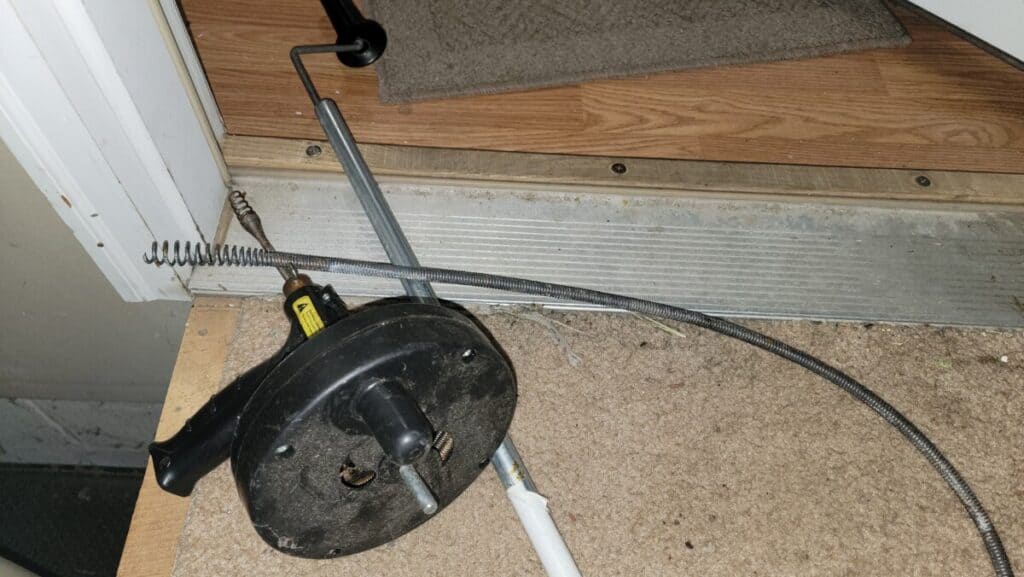
Preventing Future Clogs: Alternatives to Flushing Baby Wipes
To prevent future clogs and avoid potential damage to your plumbing, it’s important to explore alternative methods for disposing of baby wipes. While it may be tempting to simply flush them down the toilet like you would with toilet paper, this can lead to serious issues in your sewer system. So, what are some alternatives?
One option is to switch to using flushable wet wipes specifically designed for toilet use (Amazon). These wipes are made from materials that break down more easily and are less likely to cause a clog in your toilet or pipes. Despite them being tested and proven to break down in water, I still recommend throwing them away if possible.
However, it’s important to note that even these “flushable” wipes should be used with caution, as they can still contribute to clogs if used excessively or in large quantities. Another alternative is using good old-fashioned toilet paper.
Unlike baby wipes, toilet paper is specifically designed to dissolve quickly in water, making it much safer for flushing down the toilet without worry of causing a clog. By sticking to this tried-and-true method of personal hygiene, you can minimize the chances of encountering plumbing issues due to foreign items in the toilet.
If you find yourself needing a more thorough clean after using regular toilet paper alone, consider supplementing with moistened cotton swabs or balls instead of reaching for wet wipes. These options provide a similar level of cleanliness while being much gentler on your plumbing system.
Remember, prevention is key when it comes to avoiding costly and inconvenient plumbing problems caused by flushed baby wipes. By adopting these alternatives and making sure everyone in your household understands the importance of proper disposal methods, you can maintain a healthy plumbing system while keeping unnecessary clogs at bay.
What to Do If You’ve Already Flushed Baby Wipes
So, you accidentally flushed those baby wipes down the toilet, huh? Don’t worry, it happens to the best of us. But now you’re left wondering what to do next.
Well, first things first, don’t panic! There are steps you can take to address this situation and minimize any potential damage to your plumbing.
The most important thing is to avoid flushing any more wipes or other foreign items down the toilet. Flushed baby wipes can quickly lead to a clog in your toilet or even further down in your plumbing system. Trust me, I was the dingbat who did this exact thing!
To prevent any additional issues, refrain from flushing anything other than toilet paper down the toilet. This means cotton swabs and balls, wet wipes, or any other non-flushable items should be disposed of in a trash bin instead.
Now that we’ve got that covered, let’s talk about how you can potentially clear the flushable wipe clog in your toilet. One option is to use a drain auger.
This tool allows you to reach into your toilet and just beyond it to manually drill into any obstructions causing the clog. Once you’ve drilled into them, pull the auger back out and throw away what you’ve retrieved. Follow the manufacturer’s instructions carefully when using a drain auger and remember not to force it too aggressively as it could potentially cause damage.
If the clog is beyond the toilet, you can always upgrade to a drain snake which functions just like an auger but is longer. Remember, your goal is to drill into the wipes and pull them back out. Pushing them into your septic system is no good.
If you’re hooked up to the city sewer, then using a plunger is an option for you as well, but municipal systems can get clogged too, so don’t make a habit of flushing wipes and simply plunging them when you have a problem and making it someone else’s problem.
In case these DIY methods don’t resolve the issue or if you’re uncertain about how to proceed on your own, it’s always wise to consult with a professional plumber. They have the expertise and specialized tools to handle more complex situations and can ensure that your plumbing system is properly cleared without causing any further damage.
Remember, prevention is key when it comes to avoiding future mishaps like this. Stick to flushing only toilet paper and avoid using wipes or other non-flushable items in your bathroom routine.
By taking these precautions, you can save yourself from potential headaches and costly repairs caused by clogged pipes or sewer damage in the future. So breathe easy, my friend, because there’s a solution for every flushed baby wipe fiasco!
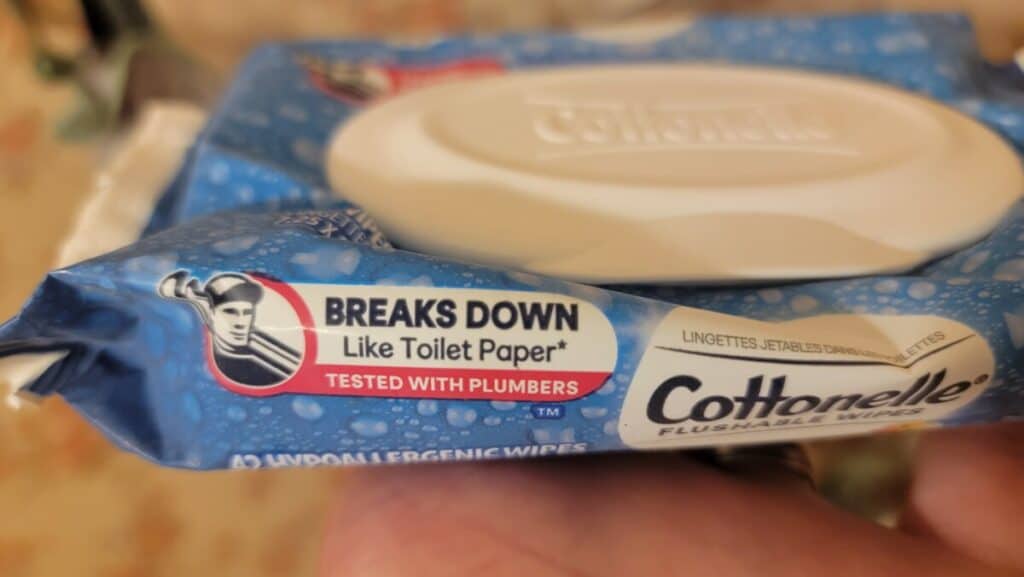
Final Thoughts
The consequences of flushing baby wipes down the toilet can be quite severe. The potential for toilet clogs, pipe blockages, and even damage to your plumbing system cannot be ignored.
It is imperative to remember that baby wipes are not designed to dissolve like toilet paper. These non-biodegradable materials can accumulate in your sewer systems and wreak havoc over time.
To prevent future incidents, it is essential to avoid flushing wipes down the toilet altogether. Instead, dispose of them in a designated trash bin.
Furthermore, educating yourself about suitable alternatives to flushable wipes such as cotton swabs and balls can significantly reduce the risk of clogging your toilet or damaging your plumbing. If you find yourself facing a clog in your toilet due to flushed baby wipes or any other foreign item, it is crucial not to panic.
Take appropriate measures such as using a plunger or drain auger to dislodge the clog gently. If you have a septic tank, calling in professional help might be necessary if the problem persists.
Remember that prevention is always better than dealing with costly repairs caused by flushed baby wipes later on. By spreading awareness about this issue and making conscious choices about what we dispose of in our toilets, we can all contribute to maintaining healthy plumbing systems and preserving our environment for future generations.


